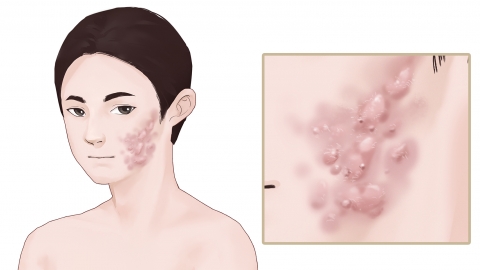How to remove acne scars
Acne scars may be caused by genetic factors, age, skin type, infections, acne, and other factors. Depending on the specific situation, general treatments or medication can be used to address them. It is recommended to visit a hospital promptly to determine your skin condition and follow medical advice for treatment.

1. Genetic factors: A family history or genetic predisposition can make individuals more sensitive to inflammatory responses, making acne scars more likely after healing. Early prevention and treatment of acne should be implemented to avoid worsening inflammation; acne scars can be treated with methods such as microneedling, laser therapy, and fillers.
2. Age factors: With aging, the content of collagen and elastic fibers gradually decreases, slowing the skin's healing process, making acne scars harder to recover. It is recommended to focus on moisturizing and anti-aging skincare in daily routines, using skincare products rich in vitamin C and hyaluronic acid to promote collagen production.
3. Skin type: Oily skin and thick stratum corneum types are more prone to sebum and keratin buildup, which can clog pores, trigger inflammatory responses, and increase the risk of acne scars after healing. Skincare should focus on cleansing and oil control, using products such as salicylic acid cleansers and fruit acid peels.
4. Infection: Bacterial or viral infections of the skin can lead to inflammatory responses that damage deeper layers of skin tissue, potentially resulting in acne scars during healing, accompanied by symptoms such as redness, swelling, fever, and pus discharge. It is recommended to follow medical advice and use medications such as mupirocin ointment, cefaclor dispersible tablets, and cefixime dispersible tablets to improve the condition.
5. Acne: Acne may be associated with infection, causing strong inflammatory responses that damage collagen in the dermis and lead to acne scars during the healing process, accompanied by symptoms such as redness, pain, and pustules. Patients can follow medical advice to use clindamycin gel, isotretinoin soft capsules, erythromycin ointment, and other medications for improvement.
There are various methods for treating acne scars, and suitable treatments should be selected based on individual conditions and medical advice. During treatment, attention should be paid to skin care and sun protection to avoid secondary skin damage.






